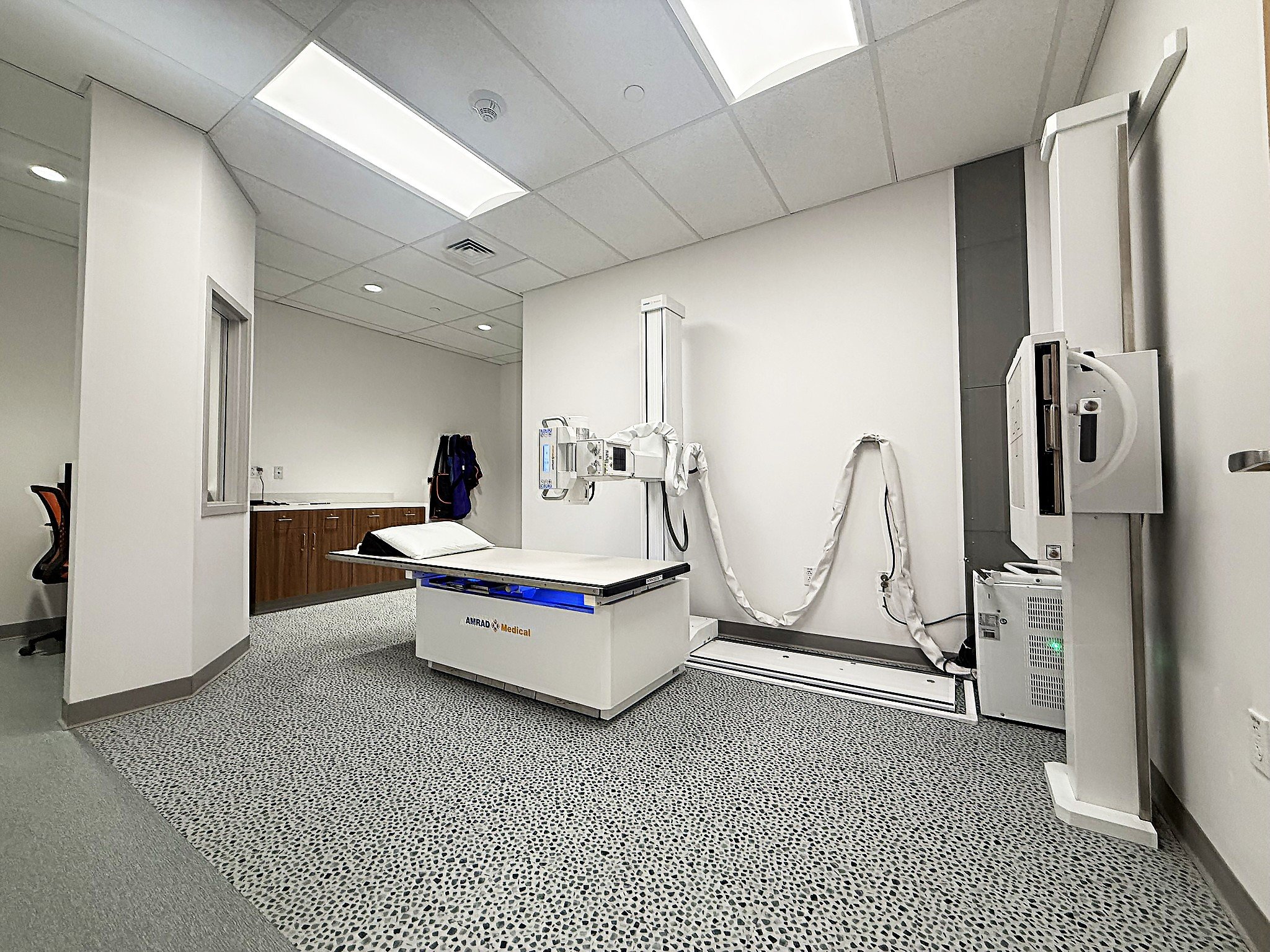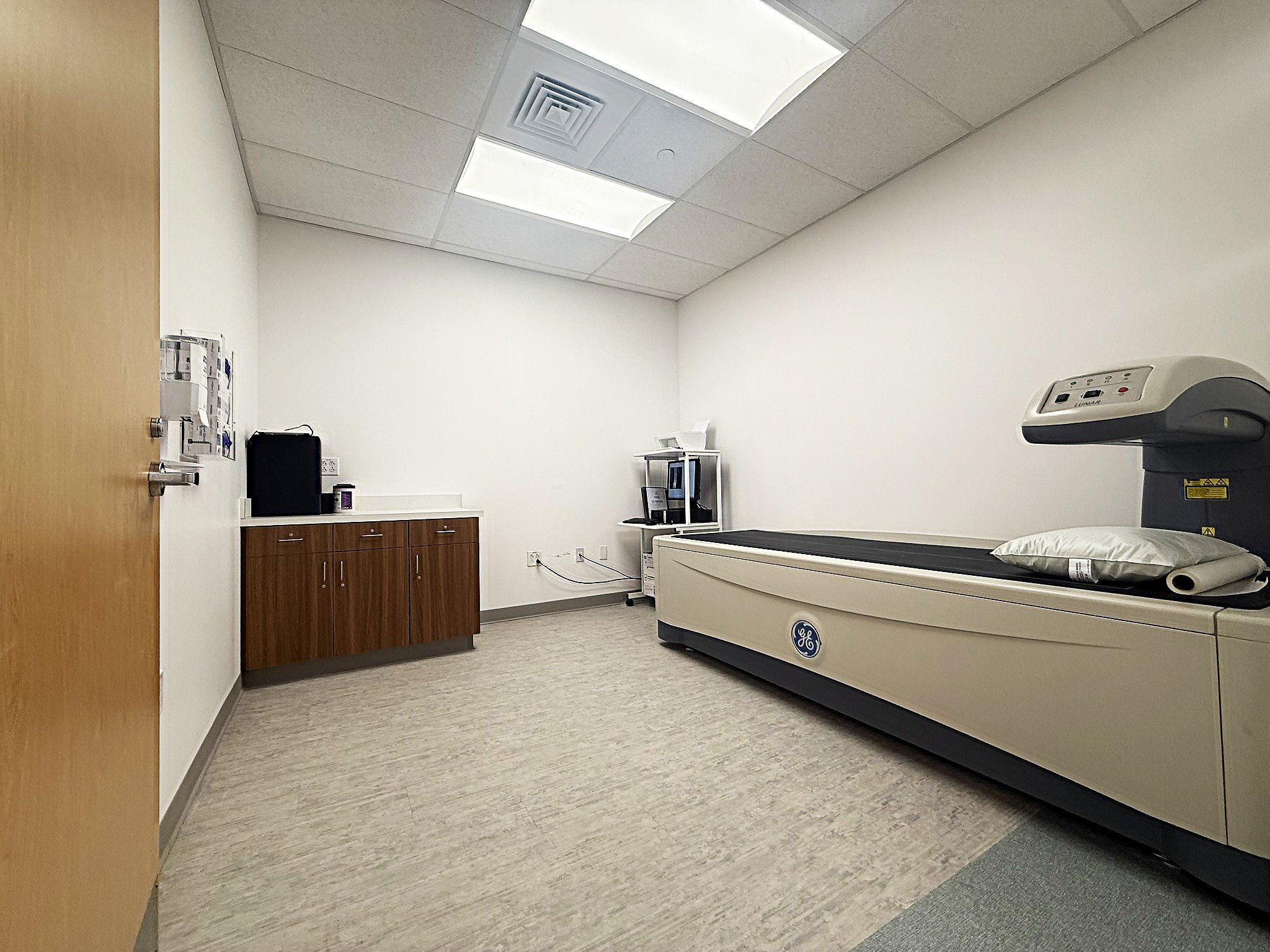
Wisteria Imaging Institute
Fast, Accurate, Affordable Imaging in Wyncote, PA
Need clear results fast? Get same-day appointments and results in 24–48 hours , no long hospital waits or hidden fees.
Located in Wyncote, PA, Wisteria Imaging Institute offers state-of-the-art outpatient imaging in a comfortable, patient-first setting. Whether you’re coming in for an X-ray, a DEXA scan, or a screening mammogram, we provide the high-quality imaging you need, quickly and affordably.

Low Dose CT Lung Cancer Screening
Our low-dose CT lung cancer screening service offers cutting-edge technology to detect early signs of lung cancer in high-risk individuals, including heavy smokers aged 50 to 80. By utilizing advanced imaging techniques with minimal radiation exposure, we prioritize early detection, enhancing treatment options and potentially saving lives.
Consult with our experienced healthcare professionals to discuss the benefits and suitability of screening for your specific needs, empowering you to make informed decisions about your lung health.
Computed Tomography Scan
Computed tomography (CT) is an advanced imaging technique that uses X-rays to create detailed cross-sectional images of the body. These images provide crucial information for diagnosing various conditions, from injuries to diseases. CT scans are particularly effective in examining the brain, chest, abdomen, and pelvis, aiding healthcare providers in treatment planning and monitoring progress.
Rapid and non-invasive, CT scans have become indispensable in modern medicine, revolutionizing diagnostic capabilities and improving patient care.

X-ray
Need an X-ray Fast? Get Results in 24 hours
X-rays are a form of electromagnetic radiation used in diagnostic imaging to produce images of the inside of the body. They pass through tissues of varying densities and are absorbed differently, creating shadows or images of internal structures. X-rays are commonly used to detect fractures, pneumonia, and other conditions affecting bones and soft tissues. Despite their usefulness, X-rays carry a small risk of radiation exposure, so healthcare providers take precautions to minimize unnecessary exposure.

DEXA Scan
A DEXA (Dual-Energy X-ray Absorptiometry) scan is a specialized type of X-ray that measures bone density. It's commonly used to diagnose osteoporosis and assess the risk of fractures. During the scan, low-dose X-rays are directed at the bones, and the amount of radiation absorbed by the bones is measured. This information helps healthcare providers determine bone mineral density and identify any bone loss or weakening.
By accurately assessing bone health, DEXA scans enable healthcare providers to develop personalized treatment plans to prevent fractures and manage osteoporosis effectively.
Ultrasound
Ultrasound imaging, also known as sonography, is a non-invasive medical test that uses high-frequency sound waves to produce images of the inside of the body. Unlike X-rays or CT scans, ultrasound does not use radiation, making it safe for use during pregnancy and for patients of all ages.

CT Coronary Calcium Score
The CT Coronary Calcium Score is a specialized imaging technique used to assess the amount of calcium deposits in the coronary arteries, which can indicate the presence of coronary artery disease (CAD). During the procedure, a CT scanner takes multiple images of the heart, and a computer calculates a score based on the density and extent of calcium deposits in the coronary arteries.
A higher calcium score is associated with a greater likelihood of having coronary artery disease, which can lead to heart attacks and other cardiovascular events. The results of the CT Coronary Calcium Score can help healthcare providers identify individuals at increased risk of heart disease, allowing for early intervention and preventive measures such as lifestyle changes or medication.

Screening Mammogram
Screening mammogram with tomosynthesis provides a detailed evaluation of your breast that is superior to standard screening mammography. We use the state of the art GE Pristina machine. Tomosynthesis provides a 3D evaluation of your breasts and is an effective way to detect early malignancy. Senographe Pristina is the ONLY FDA approved 3D mammography that delivers at the same low dose as 2D FFDM the lowest patient dose of all FDA approved systems.
Why Choose Wisteria Imaging Institute?
Same-Day Appointments
Walk-in and walk-out. *for most studies
Results in 24-48 Hours
Shared directly with your provider.
Board-Certified Radiologists
Only the best.
Transparent Pricing
With no surprise bills.
Clean, Calm, and Patient-Centered Setting
Stay at ease in our modern, peaceful office.
We also offer several prevention packages, including cardiovascular, women’s health, and athletic performance assessments.
Self-Pay Friendly & Insurance Accepted
We accept most major insurance plans, and we welcome self-pay patients with clearly listed pricing. Examples include:
X-Ray: Starting at $50
DEXA Scan: $100
Screening Mammogram: Self-pay options available
Explore our full pricing on the Health Prevention Pricing page.














